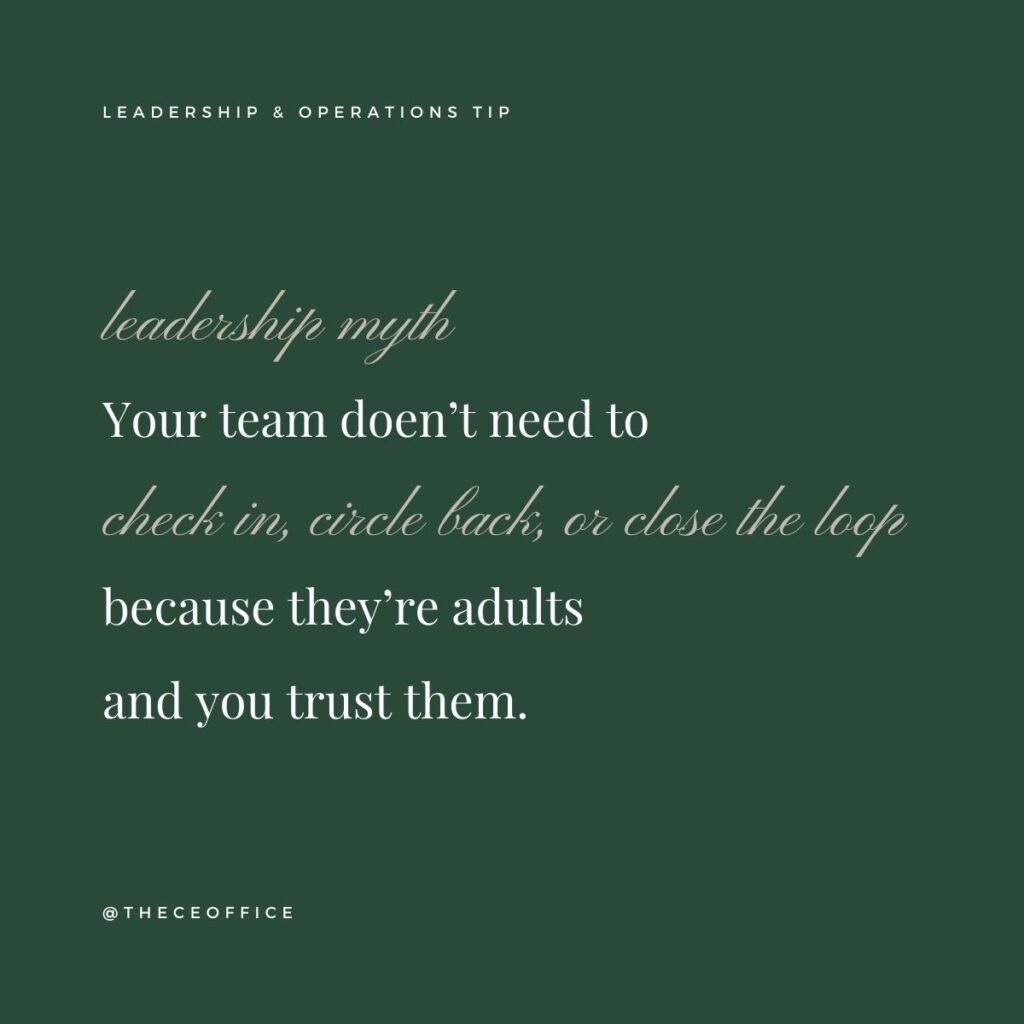Everyone is an adult. Everyone is also on a team. Being part of the team means considering your impact on others (peers, clients, and vendors). Your responsibility as a leader is to oversee and guide the impact.

When availability, communication, and performance aren’t consistent it erodes dependability and trust. Weakened dependability and trust negatively impact revenue. This in turn impacts profit, retention, and compensation.
- inconsistent availability slows down the completion of tasks and projects
- inconsistent communication creates gaps for confusion
- inconsistent performance strains team morale, client trust, and vendor relationships
Leadership isn’t about being the “cool boss” instead it’s a responsibility to pull out the best in others. Pulling out the best requires you to trust and verify. To hold your team accountable to a higher standard. To play an active role in guiding their growth through correction and recognition.
When assessing our beliefs and practices it often helps to apply them to different scenarios. Would you still do the same thing or would it look different?
I challenge you to apply the “leadership myth” to society and personal relationships.
- Society: Do you believe all motorists can drive safely without traffic signs and speed reduction systems?
- Personal Relationships: Do you want your loved ones to check in or circle back? Why or why not?
In both scenarios, I’m willing to bet you want a certain level of accountability. Accountability because you care about the well-being of yourself and others. This care applies to your relationship with your team too.
Don’t let the fear of being seen as a “micromanager” deter you from checking in, circling back, and closing the loop. Instead see yourself as the leader who cares about their success, today and tomorrow.
@theceoffice

services
Investment Guide
In this guide, you’ll find additional information about the CEOffice, coaching process, case study, policies, and discovery call resources.
